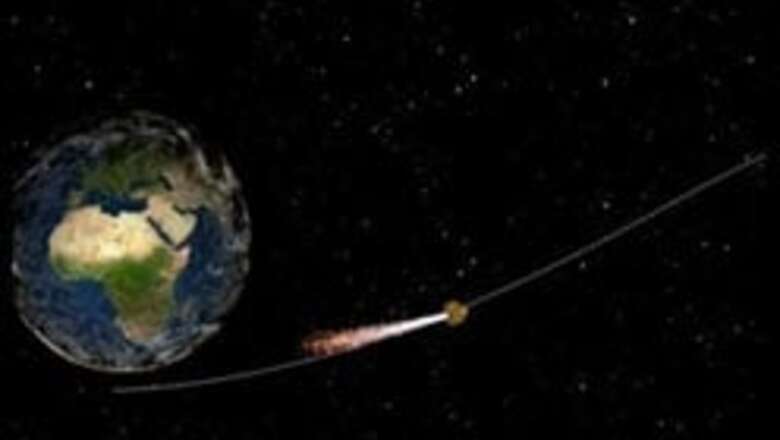
views
New Delhi: The successful launch of Chandrayaan-1, India's first unmanned moon mission, means the moon will become an intermediate base for India's Mars mission and will also help to facilitate the chemical and mineral mapping of the entire lunar surface, feels former president APJ Abdul Kalam.
Kalam, who was in Chandigarh on Friday to inaugurate the Aero Tech 2008 exhibition, said: "The launch of Chandrayaan-1 was the red letter day in the history of Indian planetary science and exploration mission. It will certainly help in the mapping of various elements like aluminium, magnesium, and uranium on the lunar surface and will make moon our next station for the Mars mission."
"The success of Chandrayaan-1 has given our space scientists and technocrats a reason to look forward to accomplish other space projects. This historic moon mission will provide us the vital clues about the origin and early history of the moon and the other planetary system," he added.
While addressing the aero scientists from all over the country at Aero Tech 2008, Kalam said: "Our aero scientists should work for providing low cost solution for air transportation of people and material between various cities. They should devise some mechanism so that the cost for providing infrastructure of air connectivity would become (more) economical than rail or road connectivity."
"I have a dream that by 2020, we will develop a 70-seater aircraft with variant features where the seating capacity can be altered to 50 or 90 according to the requirement. We should also aim at designing a 100-seater passenger jet in the next five years," he stated.
In the aircraft industry, there should be an objective to reduce acquisition cost by 25 per cent, operation cost by 25 per cent and maintenance cost by 50 per cent, Kalam said.
Emphasising the need of international collaborations, he said that aerospace is one area where nobody can work alone and the Indian Government should look for joint ventures with other countries as it will help in a healthy exchange of knowledge and technology and will lessen the economic burden.
Earlier, Kalam inaugurated the 16th annual conference of association of medical biochemists of India, named AMBICON 2008, at Government Medical College and Hospital here Friday morning.
"Our biochemists should make use of available nano-technology in making drugs for various incurable diseases. As nano particles can help us to invent an efficient mechanism in the detection and treatment of prostate cancer," said Kalam while addressing over 500 biochemists, who have come here from all over the world to attend the conference.
He said: "Our biochemists should try to find some solution for the deadly typhoid disease. All over the world, every year there are 16 million new cases of typhoid and 0.6 million people died of this disease annually. In India, this disease is responsible for two to five percent annual deaths."


















Comments
0 comment